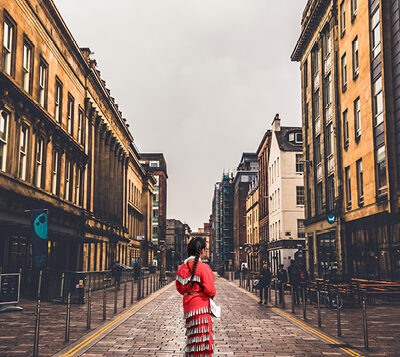News Based on facts, either observed and verified directly by the reporter, or reported and verified from knowledgeable sources.
January is National Stalking And Human Trafficking Prevention Month
 Photo Courtesy of StrongHearts Native Helpline
Photo Courtesy of StrongHearts Native Helpline
In observance of January as National Slavery and Human Trafficking Prevention Month, StrongHearts Native Helpline encourages all Americans to reflect on the impact colonization had on slavery and human trafficking in America.
“It would be remiss to ignore the impact of colonization when Indigenous people were historically stalked, kidnapped, and sold into slavery in the Americas and across the globe,” said Lori Jump, chief executive officer StrongHearts Native Helpline. “Our women and children were targeted as sex slaves, and we were seen as a commodity to be trafficked for profit.”
Today, slavery and human trafficking is an epidemic rooted in poverty and homelessness, where marginalized people are often in need of food and shelter. The signs are hidden in plain sight and can be found in poor neighborhoods, on city streets, in homeless encampments, and even under the guise of legitimate business.
Types of Trafficking and Abuse Tactics
Sex trafficking types include: prostitution, escort services, illicit massage, health and beauty, and pornography. Perpetrators use recruitment tactics that trick the victim into believing a proposition of marriage, a job offer, other false promises, and fraud. To maintain control over their victims, perpetrators use abuse tactics such as:
- Induce and exploit substance abuse
- Physical and sexual abuse
- Intimidation: weapon display or threat
- Intimacy-related emotional abuse
The Garden of Truth
In a Minnesota-based study, “The Garden of Truth,” Native women, children, and Two-spirit people were victimized more frequently because they are perceived to be easier targets and, in many cases, have already been exposed to abuse. In worst-case scenarios, victims are born into a life of sex trafficking where rape and sex trafficking were normalized as a mode of survival.
“We see the contemporary ramifications of our history and the carrying forward the kinds of attitudes where Native women, youth, and Two-spirit people are often targeted, particularly by white men and viewed as this is what you exist for,” said Christine Stark, co-author of the Garden of Truth.
Statistically, victims of human trafficking are often plagued by homelessness, poverty, and abuse which can also be identified as risk factors. In the Garden of Truth, victims revealed common experiences to include:
- 99 percent were currently or previously homeless.
- 92 percent had been raped and wanted to escape prostitution
- 79 percent had been sexually abused as children by an average of 4 perpetrators.
- 72 percent suffered traumatic brain injuries in prostitution.
- 71 percent had symptoms of dissociation.
- 52 percent had post-traumatic stress disorder (PTSD), a rate equal to combat veterans.
“Post-traumatic stress disorder can be debilitating and has the impact of freezing a moment in time for perpetuity,” Jump concluded. “In America, we need to acknowledge the truth about colonization and the impact it had on slavery and human trafficking. As Native people, we must speak our truth and resolve that we are so much more than what happened to us.”
Help Is Available
StrongHearts Native Helpline (1-844-762-8483) is an anonymous and confidential helpline for Native Americans impacted by domestic and sexual violence. Advocates offering peer support, crisis intervention, safety planning, referrals to Native-centered service providers, assistance locating healthcare facilities and crisis centers for survivors of sexual assault.
The National Human Trafficking Hotline supports victims and survivors by connecting them with services and supports to get help and stay safe. To contact the National Human Trafficking Hotline – call 1-888-373-7888. Text HELP or INFO to 233733.
References:
StrongHearts Native Helpline, “The High Risk of Human Trafficking,” https://strongheartshelpline.org/stories/high-risk-of-human-trafficking. Accessed December 23, 2022
StrongHearts Native Helpline, “Human Trafficking” https://strongheartshelpline.org/abuse/human-trafficking. Accessed December 23, 2022.
https://www.worldwithoutexploitation.org/bios/christine-stark. Accessed January 1, 2023.
